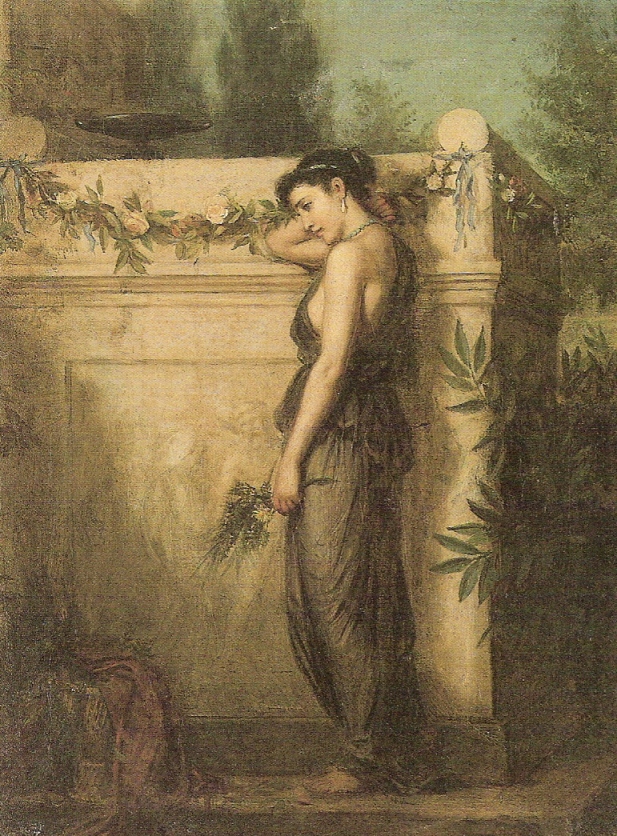Aspasia was a famous hetairai of ancient Greece. In ancient Greek society, hetairai were independent and sometimes influential women who were required to wear distinctive dresses and had to pay taxes. Mostly ex-slaves from other cities, these courtesans were renowned for their achievements in dance and music, as well as for their physical and intellectual talents. Unlike most other women in Greek society at the time, hetaerae were educated. Τhey were also the only women who actively took part in the symposia, where their opinion was welcomed and respected by men. Hetairai should not be confused with pornai of the time, who sold sex by the act and worked on the streets or out of brothels. They were the only class of women in ancient Greece with access to and independent control over considerable amounts of money.
The hetairai business had implications in fashion and taste beyond the realm of prostitution. As sex and sexuality in Greek culture evolved, courtesans were inclined to follow suit to stay fashionable and to keep up with business. The reverse is also true—as certain aspects of hetairai culture became popular, they would diffuse into everyday Greek life and fashion as well. For example, Athenian women seemed to have “learned to imitate the styles” of the prostitute. This included the removal of pubic hair, applying makeup, and adopting their style of dress. (Source)
She was from Ionia city of Miletus. Aspasia was companion to Pericles and she fully participated in circles of science, artistry and the intellectuals who surrounded Pericles. according to ancient Greek legend she taught rhetoric, wrote many of Pericles speeches and regularly conversed with the philosopher Socrates.

